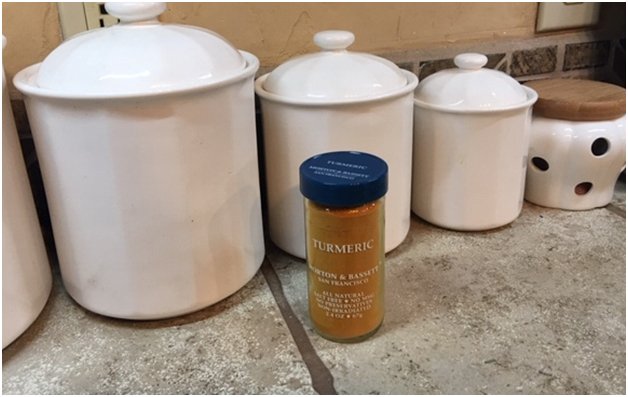My neighbor has osteoarthritis and gets steroid injections in his knees twice a year from his orthopedic surgeon. Last week he told me that his surgeon suggested he try taking turmeric and fish oil for his joint pain to tide him over until his next injection.
“What is turmeric?” he asked me. “Does it really work to help joint pain and stiffness?”
Turmeric comes from the root of a perennial herb found in Asia called turmeric, a member of the ginger family. It’s commonly used as a spice and is the main ingredient in curry powder. One of turmeric’s main constituents is curcumin, which gives curry powder its characteristic yellow color. The essential oil of turmeric is used in perfumes, as a flavoring or spice, and as a yellow food dye.
Why would my neighbor’s orthopedic surgeon recommend a spice for knee pain from arthritis?
Turmeric is being studied for its anti-oxidant and anti-inflammatory properties. In some preliminary studies, people with joint pain from osteoarthritis have noticed relief from at least some of their symptoms.
One study showed that 500mg of a turmeric extract taken 3-4 times daily for 4-6 weeks showed the same relief of pain and stiffness as taking anti-inflammatory drug ibuprofen 400mg (2 tablets of Motrin-IB) 2-3 times daily, and with fewer side effects. Another small study showed that people who turmeric regularly needed less anti-inflammatory medicine for their arthritis pain.
But not every study showed clear benefit. When people who were taking the prescription anti-inflammatory drug diclofenac (Voltaren®) for arthrtitis added turmeric extract 500mg twice a day, it didn’t add any pain relief to what they had gotten with the diclofenac.
Turmeric extract has definite anti-inflammatory and anti-oxidant properties and may improve symptoms in people with osteoarthritis or autoimmune diseases like rheumatoid arthritis, Crohn’s disease, ulcerative colitis and irritable bowel syndrome, and possibly lupus.
Since turmeric or curcumin has been used as a spice for thousands of years, it’s perfectly safe, right?
The answer to that is maybe, because the anti-inflammatory dose is WAY higher than anything used in our food. The doses of turmeric that have been found useful for joint pain are between 1-2 grams of turmeric extract per day. It would require between 3 and 18 teaspoonfuls of the ground spice to make up a 1 gram dose of turmeric.
At this anti-inflammatory dose, turmeric also has been shown to have an anti-platelet effect similar to aspirin or the prescription drug clopidogrel (Plavix®). When added to a blood thinning medicine like aspirin, Plavix®, warfarin (Coumadin®), Xarelto® or Eliquis®, turmeric will increase the risk of having bruising or serious bleeding.
Will it help you?
The biggest challenge to getting relief from your arthritic knee pain with turmeric is the formulation. For some reason, turmeric or curcumin extract is not easily absorbed into the body. There are many products being offered, but the lack of regulation in herbal and food supplement products in our country makes picking a turmeric product that will be potent enough to help you quite challenging.
Here are 6 Final Facts About Turmeric and Curcumin:
- Start a symptom diary to see if it’s helping you.
The best way to try turmeric or curcumin is to start a symptom diary with the level of discomfort your symptoms (joint pain, stiffness) cause you BEFORE you take your first dose. Ranking your symptoms on a scale of 1 to 5 or from 1 to 10 BEFORE and AFTER you start an herbal product helps you decide whether it’s helping you or not.
- Be patient.
Like glucosamine, turmeric seems to take longer than just a few days for your body to respond. You should allow 4-6 weeks for an adequate trial.
- Don’t overdo it.
Turmeric or curcumin seems safe as long as you stay within a maximum of 2 grams per day divided into 2-4 doses.
- Buy a quality product if possible.
Turmeric extracts of the same concentration can vary quite a lot in their effectiveness due to differences in the formulations. With minimal regulation and oversight of food supplements and herbal products in the United States, it can be hard to find an effective and reasonably priced product.
- Turmeric needs help to improve its absorption.
Turmeric is not easily absorbed into our bodies, so some turmeric extracts have additional ingredients like black pepper to try to improve its absorption, while other additives are used to try to keep turmeric inside your body for as long as possible.
- Turmeric can increase risk of bleeding.
If you are taking a blood thinner like aspirin, clopidogrel (Plavix®), warfarin (Coumadin®), Pradaxa®, Xarelto® or Eliquis®, you should avoid turmeric and curcumin altogether and instead try glucosamine, which doesn’t increase the risk of bruising or bleeding.


